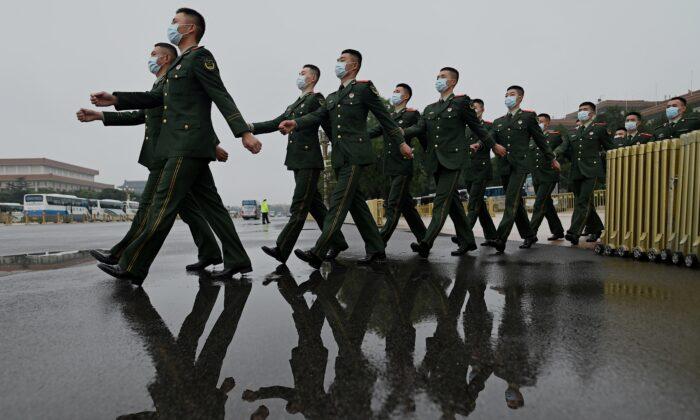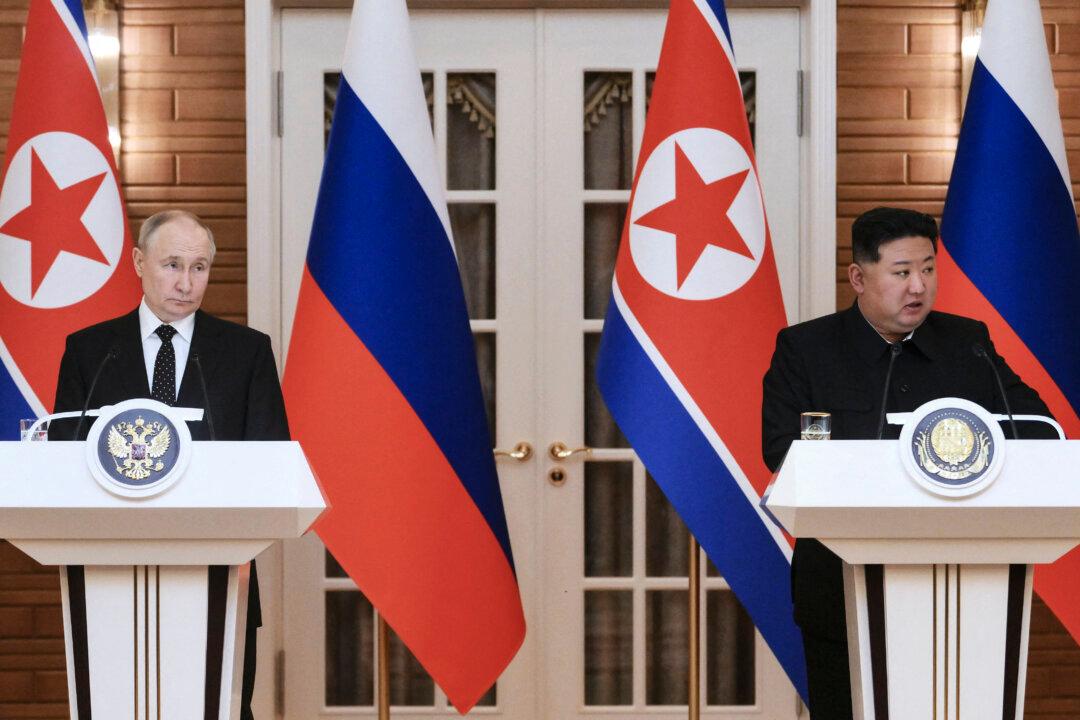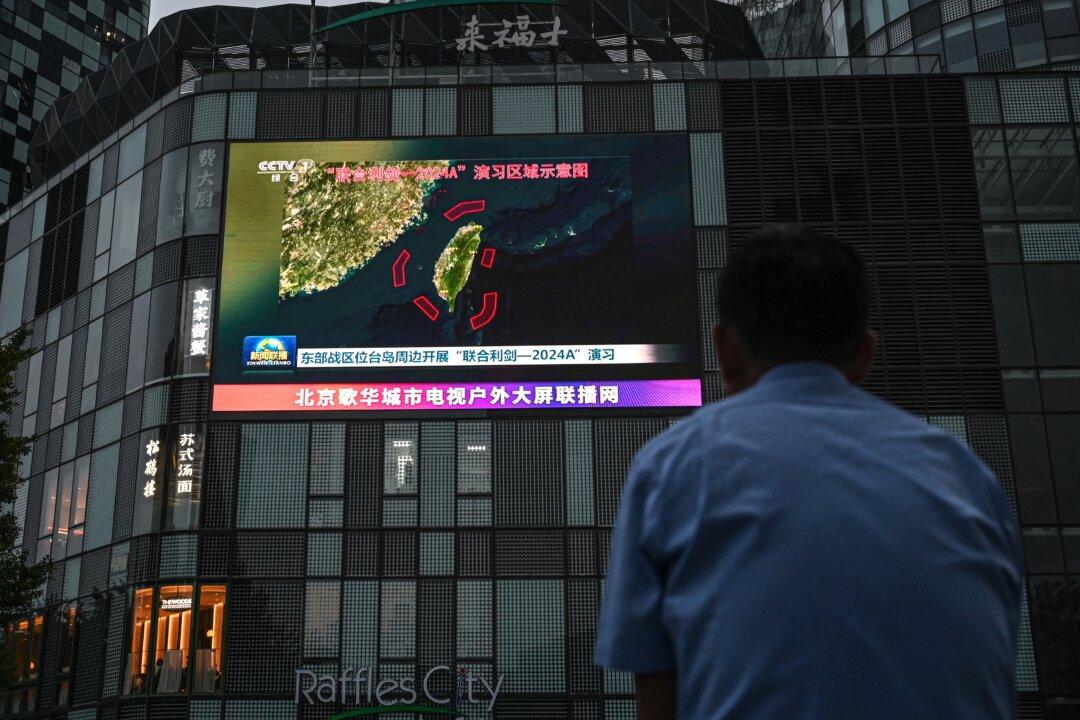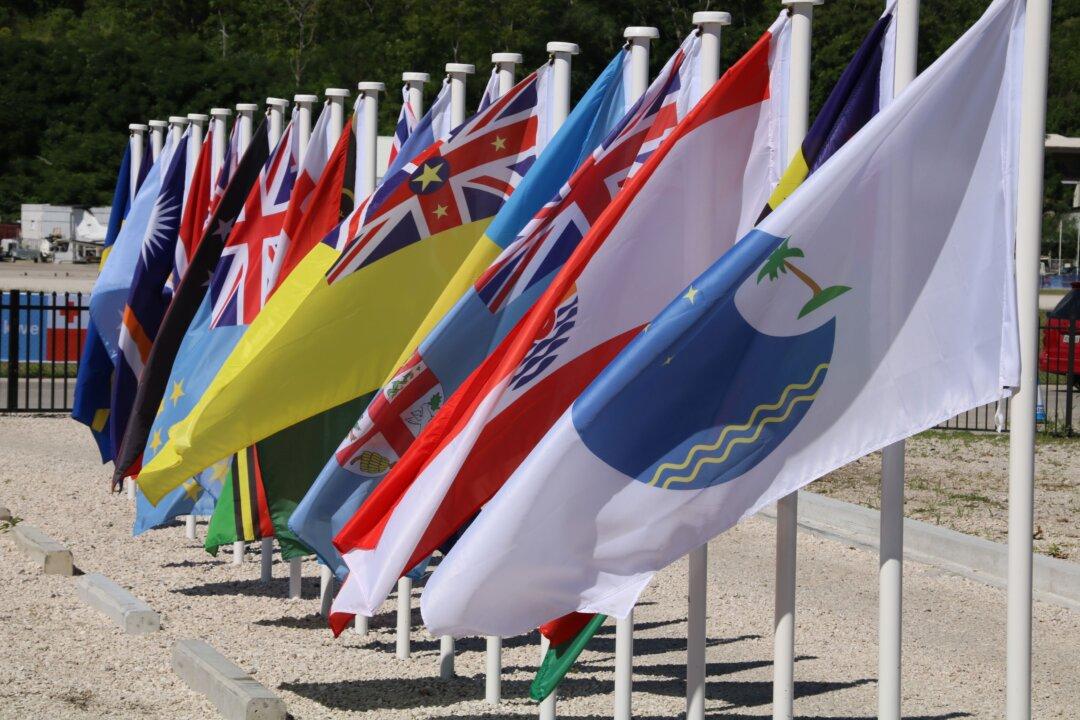U.S. military planners are justifiably concerned that China’s People’s Liberation Army (PLA) is fielding increasingly advanced military and space platforms and systems in impressive quantities.
But is this the heart of the Chinese threat to the United States?
Or is Beijing’s non-military conflict capability of greater concern?
And, even then, under what circumstances would China—or, rather, the Chinese Communist Party (CCP)—successfully challenge the U.S. strategically?
The CCP has, for a quarter century, outlined its doctrine of “unrestricted warfare,” in which it challenges the United States but clearly indicates that its form of total war (unrestricted war) relies on the avoidance of direct military contact between the two powers.
What, then, is the principal use of the PLA?
First, the PLA is a psychopolitical instrument rather than a military warfighting instrument. The PLA must achieve prestige at home and abroad. The power and efficiency of PLA capabilities is designed to equate to national pride at home in such a way that the CCP is seen as the source of that pride and cannot be displaced by internal threats. Moreover, it must create the image that China equates or exceeds on the world stage with the image of the United States, in terms of leadership and dominance of the future.
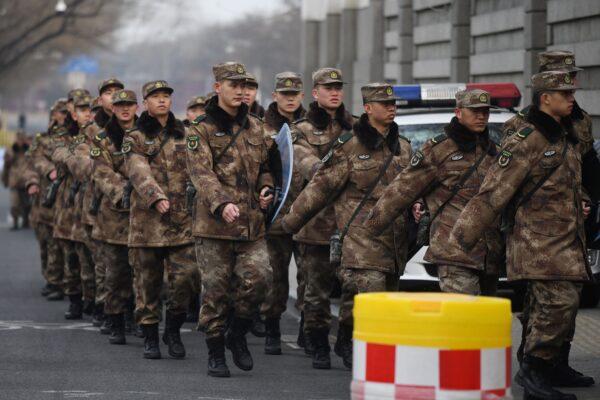
Clearly, to achieve this image, the PLA must be able to actually be a credible warfighting instrument, but there are reasons why a resort to warfighting would be strategically fatal.
Second, the PLA prestige must provide deterrence to any hostile plans to limit the CCP in its domestic or international actions, not just to deter the United States, but India, Japan, Russia, Australia, and others.
Third, the PLA prestige has projected power and authority over countries around the world, to intimidate or woo them into alliance or away from the West.
The CCP has so far been successful in all of these objectives, and this has been the most important achievement of the Xi Jinping era, which began effectively in 2012. Earlier CCP leaders have attempted to reach this level of PLA prestige or capability, but Xi has been able to bring it to fruition, despite the concurrent degradation of the mainland Chinese economy.
So the credible (in some ways) PLA threat of force to attack and absorb the Republic of China (ROC, Taiwan’s official name) is highly rhetorical for domestic political consumption. Some theoreticians in China are concerned that Xi actually thinks that this is a real strategic objective rather than a psychopolitical one.
Yes, it is critical for the CCP to actually achieve an end to the Chinese Civil War, which saw the CCP take control of mainland China in 1949. But the CCP failed to put an end to the legal and emotional existence of the ROC, which continues to survive and prosper as the actual successor state to Imperial China.
Destroying Taiwan would deliver legitimacy to the CCP as the sole representative of “China.” As long as Taiwan continues to exist, the CCP’s legitimacy is questionable or incomplete in the minds of many Chinese.
Similarly, the Communist Party of the Soviet Union (CPSU) was never able to feel secure in its legitimacy as the successor to the Russian Empire, and was in 1990 proven correct in this insecurity when Russian nationalism resurged to the point of overthrowing the CPSU and USSR.
And yes, Taiwan exists as a real strategic impediment constraining the CCP and the PLA from unfettered access to the Central Pacific. But the ability of the ROC, Japan, and the West to use the first island chain to restrict free PLA movement did not inhibit China’s economic growth in the 21st century. So in many respects, the Taiwan geographical constraint on free naval expansion by China is academic.
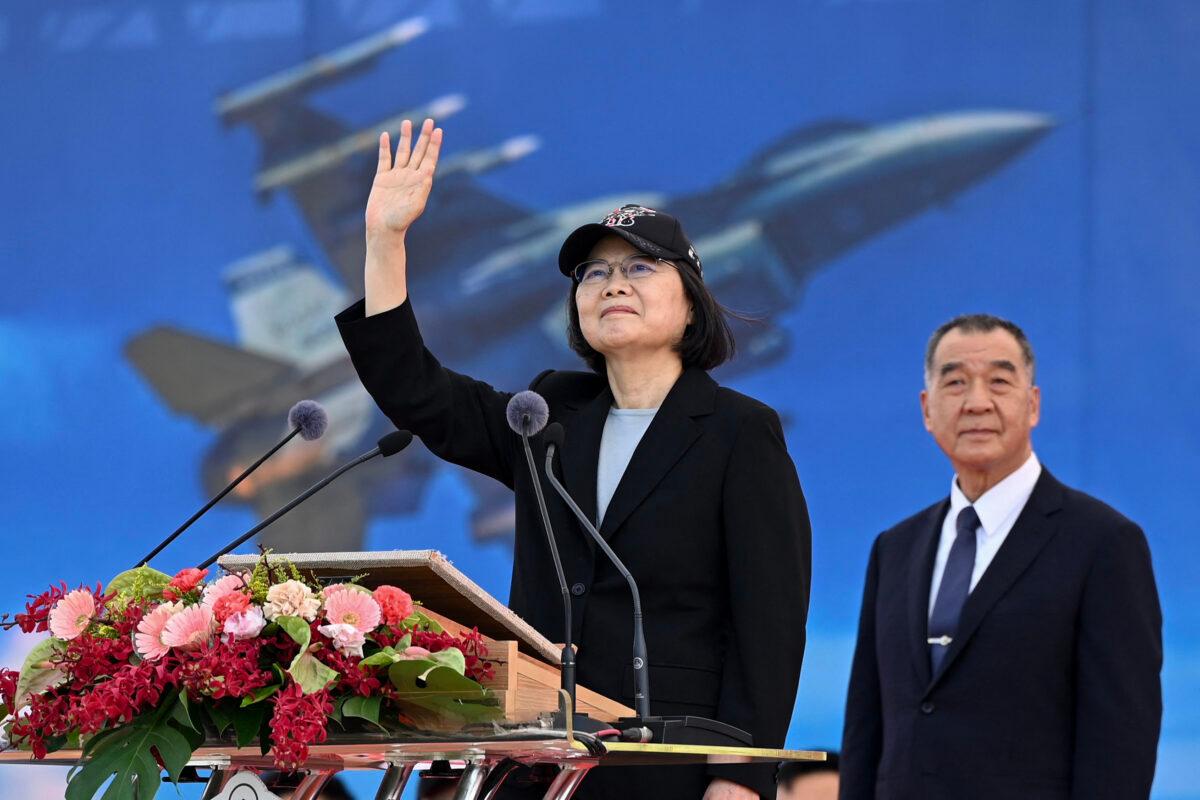
The unrestricted warfare doctrine stresses the defeat of the CCP’s adversaries by psychopolitical means, avoiding direct military confrontation. This form of warfare evolved from the Cold War of 1945–90 as a means of ensuring strategic warfare without direct military confrontation and the inherent risks of formal warfare.
The CCP learned the lessons of the 20th century, and understood that Japan’s defeat in World War II was guaranteed when it attacked the U.S. militarily on Dec. 7, 1941. It demonstrated that Japan could not reach into, and defeat, the core strategic depth of the United States, embodied in its agricultural and industrial capabilities.
Today, the CCP could not destroy the U.S. strategic advantage militarily without risking its own defeat, so any destruction of the United States would have to be achieved by indirect means—the most direct being cyberwarfare, but more by achieving the decline of the U.S. strategic capabilities by inducing domestic collapse or paralysis.
Direct military confrontation of the United States by the PLA could, as with the initial Japanese attacks on America, initially be successful. But it would galvanize a unity of the U.S. polity and undo years of attempts to encourage U.S. disunity.
Moreover, it would result in the United States immediately cutting the sale of agricultural products—mainly food—to the Chinese market. Given the existential dependence of China on imported food (and the overwhelming importance of the United States as the main supplier), any U.S. denial of food exports would fatally undermine the viability of China.
This would spell the end of the CCP’s ability to control mainland China.
Does this mean that direct Western responses—to build warfighting equivalence or superiority—to the PLA are unimportant? No, because containment of the CCP’s strategic strength—essentially its prestige and deterrence, which gives it control of the population—is critical to stopping Beijing damage Western cohesion and dominance. And the CCP’s lure of the West into direct military competition as an equal power or credible threat actually adds to Beijing’s prestige.
The U.S. and Western posture must firstly deny prestige to the CCP and then curtail Beijing’s ability to accelerate the decline of the West. In other words, the United States and West—while facing their own decline—must ensure that they have the ability to regain command of their own destinies.
So military competition between the United States and China is important, but in different ways—in a different strategic terrain—than has been considered to date.
